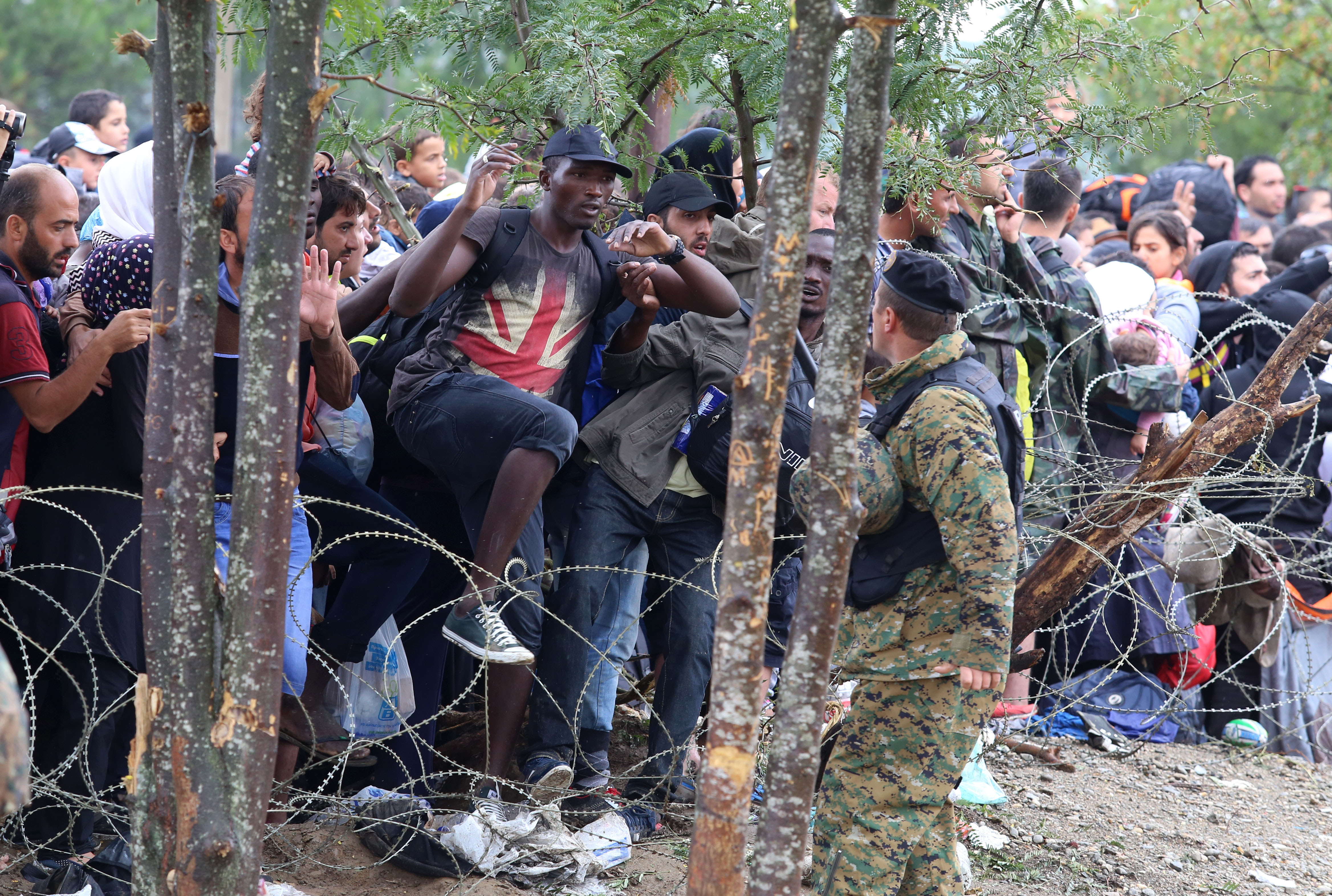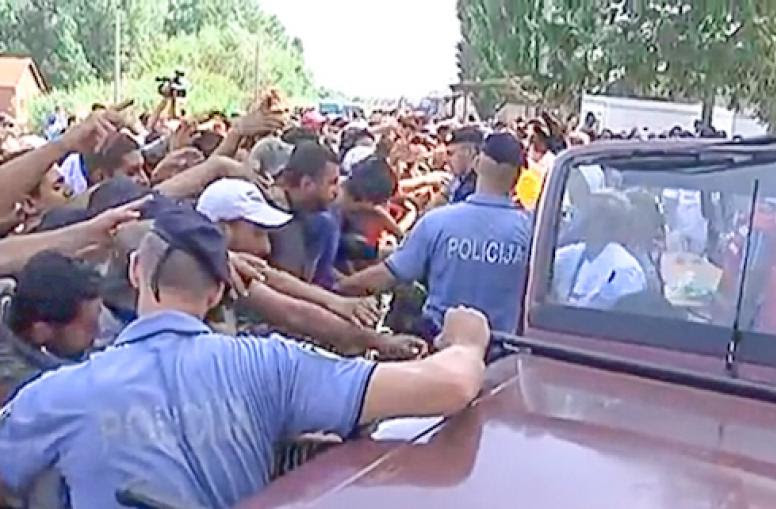In the second half of 2015, the Eastern, the South-Eastern European andthe Balkan countries caused an overwhelming number of headlines when it comes to migration. Hundreds of thousands of migrants/refugees from theMiddle East made their way to the West through Greece, Macedonia and Serbia, as well as Bulgaria, Croatia and Slovenia. All this fueled by the“welcome all, come to Germany” message trumpeted by German Chancellor Angela Merkel.For Croatia and all other countries in the East/South Europe region, regardless of whether an EU member state or not and given the evident rush of these migrants/refugees to reach their desired destination in Germany and the West of Europe, providing for a smooth and orderly passage was not an easy task by any stretch of imagination. The refugees were nevertheless assisted through in the direction of Austria and Germany.
To a large extent, governments along the so-called Balkan route, includingCroatia, recognised the problem too late and were largely unprepared forthe influx but as weeks rolled by the countries en route to Austria, Germany and the rest of the desired destinations became more organised, set up temporary refugee camps, made available trains and buses (and private taxis hurled along to earn a buck) that would transport the refugees to theborder of the next country. The EU quota system by which each member state was supposed to take in a certain number of refugees caused resentment in the region and some countries, like Hungary, swiftly raised border fences including razor-wire ones to stop and divert the masses stampeding in. Slovenia followed Hungary and raised the fences on border between it and Croatia; Hungary and Slovenia said they would protect theSchengen border from the influx of the people escaping the Middle East or North Africa any which way.The massive movements of migrants through and from the Balkans have forcefully shifted the issue of EU external borders into focus. The EU has tried to avoid this topic for more than a decade but time is running out for addressing it if it wants to get the waves of refugees under control. Theenormous by number refugee and migration movements of 2015 are likely to increase in 2016, once Spring comes (although deep winter and snowfalls cover the region at this moment, thousands of refugees/migrants are still making their way from Turkey, across Greece and along the so-called Balkan route) the numbers are likely to increase to perhaps unmanageable proportions. This would seem a logical conclusion and prediction to make given the widespread hunger and devastation in theMiddle East, particularly Syria and Iraq, resulting from the Islamic State terrorists but also their opposition. The mass migration into Europe from theMiddle East has a security aspect inasmuch as religious radicalisation in theMuslim societies of the region poses a potential risk for the affected countries and for the whole of Europe.
“Not only the EU, but NATO also needs to protect its borders in the Balkans. In 2015, NATO members Romania and Bulgaria repeatedly warned that theUkraine conflict had put them in a potentially very dangerous situation. Both countries joined the sanctions against Russia, while Bucharest and Moscow also have tensions over Moldova. The geopolitical and energy-policy aspirations of the Kremlin in the region must be taken very seriously. On theone hand we have a country like Serbia, which is in a strategic partnership with Russia, and on the other Montenegro, which has just received an invitation to join NATO," writes Deutsche Welle.

Migrants break the police blockade
to enter into Macedonia
from Greece late 2015
(AP Photo/Vlatko Perkovski)
to enter into Macedonia
from Greece late 2015
(AP Photo/Vlatko Perkovski)
With her popularity and political longevity seriously and consistently being eroded German Chancellor Angela Merkel has during the past week increased her rhetoric on tough measures in Germany that would reducethe number of refugees/migrants coming in, tighten Germany’s border controls, increase the number of those being deported or sent back to thecountries along the so-called Balkan route (which includes Croatia) and hasten the asylum seeking process as well as time to be taken to whisk or deport those who are found not to be genuine asylum seekers.On January 15 Slovenia’s Prime Minister met the German Chancellor, Angela Merkel in Berlin, mainly to discuss the migration issue in Europe, says on the government of Slovenia Internet portal.Loud and clear messages coming out of Slovenia in the past days includethe resolve in Slovenia to drastically reduce the number of refugees/migrants entering Slovenia if Austria and Germany restrict their intake of migrants. Indeed, the awful statistics of sexual abuse and violence reportedly perpetrated against German women by men many of who are said to be refugees and asylum seekers during the past weeks has raised and intensified the political and civic activities that would see tighter controls of migrants as well as reduction in numbers that will be received in Western Europe.
Raised level of fear that it will become impossibly and alarmingly clogged up with new refugees/migrants as well as those sent back from Germany, Austria, Slovenia is surfacing across Croatia and it would seem that such fear is justified. There is more talk about control and reduction of refugees/migrants across Europe than what there is about compassion. Of course, the often reported incidents of refugees/migrants acting as if they are entitled to a comfortable living in countries they have arrived in does not do much to alleviate the intensely felt lack of compassion towards those running from certain death or starvation. More importantly for Croatia, Slovenia’s Prime Minister Miro Cerar’s visit to Berlin last week seems to be heralding an erection of an even more forbidding wall between Croatia and Slovenia than what razor-wire fencing represents. Would this leave Croatia as a distressing bottleneck in thepassage of refugees/migrants to the West is anybody’s guess but certainlythe recently seen resolve to reach a European country of choice in thepeople fleeing the Middle East would strongly suggest that there is no strong enough barrier, bar waging an armed war against therefugees/migrants, that could stop these people reaching the West.
Furthermore, would this mean that the EU discriminates between its member states by excluding Croatia from increased measures to control therefugee/migrant influx just because Croatia is not yet a member state of theSchengen EU area? Even further, would this mean that Croatia itself will need to protect its own sanity and ability to cope with the influx of refugees/migrants, registering them and checking their identification papers, by erecting razor-wire fences, putting police at the border with Serbia and Bosnia and Herzegovina in order to control the influx? The EU commission keeps releasing phrases and fears that passport-free travel area, the Schengen Zone, was under threat that is directly associated with the refugee/migrant crisis. More and more member states have reintroducing border controls in response to migrant movements, including Germany, Sweden, Denmark, Hungary and Austria and now Slovenia is making loud noises in aid of such a prospect.
If Schengen collapses the collapse will be the beginning of the end of theEuropean project. The European Commission is reportedly working on measures to create a more sustainable migration system. The steps would include financial assistance, a revision of the blue card immigration system and a new plan for resettling asylum seekers. The Commission is said to release its proposals in March 2016.
However, there is no doubt that what is happening on the EU ground and inthe countries surrounding the EU or on the path of this migration crisis, is more and more a matter of fighting for self-preservation. While theEuropean Commission insists on unity and camaraderie between member states when it comes to managing the refugee/migrant crisis – cultivatingthe symbol of “Solidarity” that caught on from Eastern Europe across thewhole Western world some three decades ago – these days the symbol that Donald Trump’s stance on anti-migration represents seems to be making serious inroads across EU countries. Measures to control refugee/migrant influx, measures to stop it are an increasing content-filler on political podiums as well as the media. Schengen borders are considered in these restrictive measures more often than EU borders. Some EU countries pointthe finger at the other, some justify their policies of controlling and reducingthe number of refugees/migrants they will let in while they expect the other country to take all that come through its borders – a mess of biblical proportions in unfolding in Europe. Croatia should indeed become gravely concerned about being excluded from EU migration measures just because it stands outside the Schengen borders. Regardless of the ugly parts of its face, as in the US so too in Europe, these are more and more the times when political leaders are generating the feeling that the only way to regain or keep political support is by showing that they care for their own, and not much for the refugees/migrants or aliens and Croatia would be wise to start reading these messages and act accordingly. Ina Vukic, Prof. (Zgb); B.A.,M.A.Ps. (Syd
)
However, there is no doubt that what is happening on the EU ground and inthe countries surrounding the EU or on the path of this migration crisis, is more and more a matter of fighting for self-preservation. While theEuropean Commission insists on unity and camaraderie between member states when it comes to managing the refugee/migrant crisis – cultivatingthe symbol of “Solidarity” that caught on from Eastern Europe across thewhole Western world some three decades ago – these days the symbol that Donald Trump’s stance on anti-migration represents seems to be making serious inroads across EU countries. Measures to control refugee/migrant influx, measures to stop it are an increasing content-filler on political podiums as well as the media. Schengen borders are considered in these restrictive measures more often than EU borders. Some EU countries pointthe finger at the other, some justify their policies of controlling and reducingthe number of refugees/migrants they will let in while they expect the other country to take all that come through its borders – a mess of biblical proportions in unfolding in Europe. Croatia should indeed become gravely concerned about being excluded from EU migration measures just because it stands outside the Schengen borders. Regardless of the ugly parts of its face, as in the US so too in Europe, these are more and more the times when political leaders are generating the feeling that the only way to regain or keep political support is by showing that they care for their own, and not much for the refugees/migrants or aliens and Croatia would be wise to start reading these messages and act accordingly. Ina Vukic, Prof. (Zgb); B.A.,M.A.Ps. (Syd
)






Nema komentara:
Objavi komentar